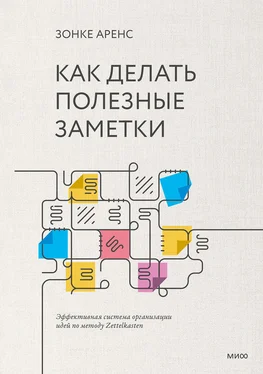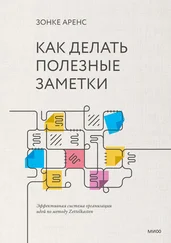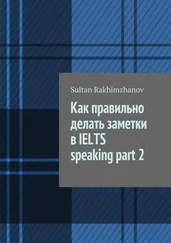70. Ji, Mindy F., and Wendy Wood. 2007. «Purchase and Consumption Habits: Not Necessarily What You Intend.» Journal of Consumer Psychology 17 (4): 261–276.
71. Job, V., C. S. Dweck, and G. M. Walton. 2010. «Ego Depletion — Is It All in Your Head? Implicit Theories About Willpower Affect Self-Regulation.» Psychological Science 21 (11): 1686–1693.
72. Канеман, Даниэль. Думай медленно… Решай быстро. М.: АСТ, 2013.
73. Kahneman, Daniel. 2013. Thinking, Fast and Slow. Reprint edition. New York: Farrar, Straus and Giroux.
74. Kant, Immanuel. 1784. «What is Enlightenment?» Translated by Mary C. Smith. 1991. http://www.columbia.edu/acis/ets/CCREAD/etscc/kant.html.
75. Karpicke, Jeffrey D., Andrew C. Butler, and Henry L. Roediger III. 2009. «Metacognitive Strategies in Student Learning: Do Students Practise Retrieval When They Study on Their Own?» Memory 17 (4): 471–479.
76. Kornell, Nate, and Robert A. Bjork. 2008. «Learning Concepts and Categories: Is Spacing the ‘Enemy of Induction’?» Psychological Science 19 (6): 585–592.
77. Kruger, Justin, and David Dunning. 1999. ‘Unskilled and Unaware of It: How Difficulties in Recognizing One’s Own In-competence Lead to Inflated Self-Assessments’. Journal of Personality and Social Psychology 77 (6): 1121–1134.
78. Kruse, Otto. 2005. Keine Angst vor dem leeren Blatt: ohne Schreibblockaden durchs Studium. Frankfurt/Main: Campus.
79. Langer, E. J., and J. Rodin. 1976. «The Effects of Choice and Enhanced Personal Responsibility for the Aged: A Field Experiment in an Institutional Setting.» Journal of Personality and Social Psychology 34 (2): 191–198.
80. Latour, Bruno, and Steve Woolgar. 1979. Laboratory Life: The Social Construction of Scientific Facts. Beverly Hills: Sage Publications.
81. Levin, Mary E., and Joel R. Levin. 1990. «Scientific Mnemonomies: Methods for Maximizing More Than Memory». American Educational Research Journal 27 (2): 301–21.
82. Levinson, Marc. 2006. The Box: How the Shipping Container Made the World Smaller and the World Economy Bigger. Princeton, N.J: Princeton University Press.
83. Levy, Neil. 2011. «Neuroethics and the Extended Mind.» In Judy Illes and B. J. Sahakian (Ed.), Oxford Handbook of Neuro-ethics, 285–94, Oxford University Press.
84. Lichter, S. Robert. 2001. «A Plague on Both Parties Substance and Fairness in TV Election News». The Harvard International Journal of Press/Politics 6 (3): 8–30.
85. Loewenstein, Jeffrey. (2010). How One’s Hook Is Baited Matters for Catching an Analogy. In B. H. Ross (Ed.), The Psychology of Larning and Motivation: Advances in Research and Theory, 149–182. Amsterdam: Academic Press.
86. Lonka, Kirsti. 2003. «Helping Doctoral Students to Finish Their Theses.» In Teaching Academic Writing in European Higher Education, edited by Lennart Björk, Gerd Bräuer, Lotte Rienecker, and Peter Stray Jörgensen, 113–131. Studies in Writing 12. Springer Netherlands.
87. Luhmann, Niklas. 1992. «Kommunikation mit Zettelkästen. Ein Erfahrungsbericht.» In Universität als Milieu. Kleine Schriften., edited by André Kieserling, 53–61. Bielefeld: Haux.
88. Luhmann, Niklas. 1997. Die Gesellschaft der Gesellschaft. Frankfurt am Main: Suhrkamp.
89. Luhmann, Niklas. 2000. «Lesen Lernen.» In Short Cuts, 150–157. Frankfurt am Main: Zweitausendeins.
90. Luhmann, Niklas. 2005. Einführung in die Theorie der Gesellschaft. Heidelberg: Carl Auer.
91. Luhmann, Niklas, Dirk Baecker, and Georg Stanitzek. 1987. Archimedes und wir: Interviews. Berlin: Merve.
92. Lurija, Aleksandr Romanovič. 1987. The Mind of a Mnemonist: A Little Book about a Vast Memory. Cambridge MA: Harvard University Press.
93. MacLeod, Colin M. 2007. «The Concept of Inhibition in Cognition.» In Inhibition in Cognition, edited by David S. Gorfein and Colin M. MacLeod, 3–23. Washington: American Psychological Association.
94. Mangel, Marc, and Francisco J. Samaniego. 1984. «Abraham Wald’s Work on Aircraft Survivability.» Journal of the American Statistical Association 79 (386): 259–267.
95. Manktelow, K. I., and Kenneth J. W Craik, (Ed.). 2004. «The History of Mental Models.» In Psychology of Reasoning: Theoretical and Historical Perspectives, 179–212. New York: Psychology Press.
96. Markman, K. D., M. J. Lindberg, L. J. Kray, and A. D. Galinsky. 2007. «Implications of Counterfactual Structure for Creative Generation and Analytical Problem Solving.» Personality and Social Psychology Bulletin 33 (3): 312–324.
97. Marmot, M. G., H. Bosma, H. Hemingway, E. Brunner, and S. Stansfeld. 1997. «Contribution of Job Control and Other Risk Factors to Social Variations in Coronary Heart Disease Incidence.» Lancet 350 (9073): 235–39.
98. Marmot, Michael G. 2006. «Status Syndrome: A Challenge to Medicine.» JAMA 295 (11): 1304–1307.
99. Maslow, Abraham H. 1966. The Psychology of Science. Chapel Hill, NC: Maurice Bassett.
100. Mata, J., Todd, P. M., Lippke, S. 2010. When Weight Management Lasts. Lower Perceived Rule Complexity Increases Adherence. Appetite, 54(1), 37–43.
101. McDaniel, Mark A., and Carol M. Donnelly. 1996. «Learning with Analogy and Elaborative Interrogation.» Journal of Educational Psychology 88 (3): 508–519.
102. McMath, Robert M., and Thom Forbes. 1999. What Were They Thinking? New York: Crown Business.
103. Miller, George A. 1956. «The magical number seven, plus or minus two: some limits on our capacity for processing information.» Psychological Review 63 (2): 81–97.
104. Moller, A. C. 2006. «Choice and Ego-Depletion: The Moderating Role of Autonomy». Personality and Social Psychology Bulletin 32 (8): 1024–1036.
105. Mueller, P. A., and D. M. Oppenheimer. 2014. «The Pen Is Mightier Than the Keyboard: Advantages of Longhand Over Laptop Note Taking.» Psychological Science 25 (6): 1159–1168.
106. Mullainathan, Sendhil, and Eldar Shafir. 2013. Scarcity: Why Having Too Little Means So Much. London: Penguin UK.
107. Mullen, Brian, Craig Johnson, and Eduardo Salas. 1991. «Productivity Loss in Brainstorming Groups: A Meta-Analytic Integration.» Basic and Applied Social Psychology 12 (1): 3–23.
108. Munger, Charles. 1994. «A Lesson on Elementary, Worldly Wisdom as it Relates to Investment Management & Business.» Speech given at USC Business School.
109. Muraven, Mark, Dianne M. Tice, and Roy F. Baumeister. 1998. «Self-Control as a Limited Resource: Regulatory Depletion Patterns». Journal of Personality and Social Psychology 74 (3): 774–789.
110. Nassehi, Armin. 2015. Die letzte Stunde der Wahrheit. Warum rechts und links keine Alternativen mehr sind und Gesellschaft ganz anders beschrieben werden muss. Hamburg: Murmann.
111. Neal, David T., Wendy Wood, Jennifer S. Labrecque, and Phillippa Lally. 2012. «How Do Habits Guide Behavior? Perceived and Actual Triggers of Habits in Daily Life.» Journal of Experimental Social Psychology 48 (2): 492–498.
112. Newman, Joseph, William T. Wolff and Eliot T. Hearst. 1980. «The Feature-Positive Effect in Adult Human Subjects.» Journal of Experimental Psychology. Human Learning and Memory 6 (5): 630–650.
113. Nickerson, Raymond S. 1998. «Confirmation Bias: A Ubiquitous Phenomenon in Many Guises.» Review of General Psychology 2 (2): 175–220.
114. Ophir, Eyal, Clifford Nass and Anthony D. Wagner. 2009. «Cognitive Control in Media Multitaskers.» Proceedings of the National Academy of Sciences 106 (37): 15583–1587.
115. Oppenheimer, Daniel M. 2006. «Consequences of Erudite Vernacular Utilized Irrespective of Necessity: Problems with Using Long Words Needlessly». Applied Cognitive Psychology 20 (2): 139–156.
116. Painter, James E, Brian Wansink, and Julie B. Hieggelke. 2002. «How Visibility and Convenience Influence Candy Consumption». Appetite 38 (3): 237–238.
Читать дальше
Конец ознакомительного отрывка
Купить книгу





![Наталья Краснова - [НЕ]ВЕРНОСТЬ. Что делать, когда не знаешь, что делать](/books/452212/natalya-krasnova-ne-vernost-chto-delat-kogda-n-thumb.webp)






